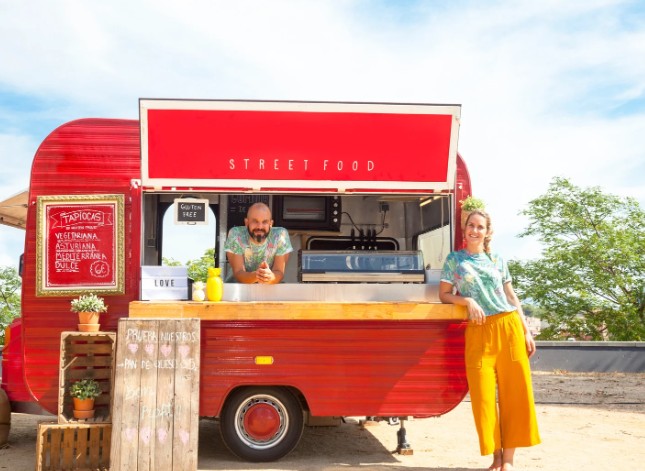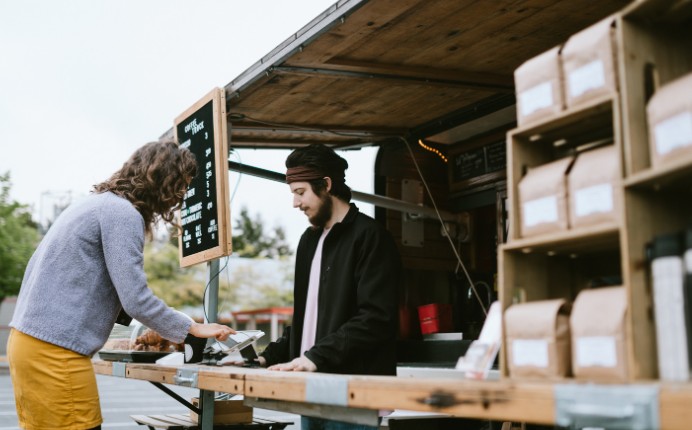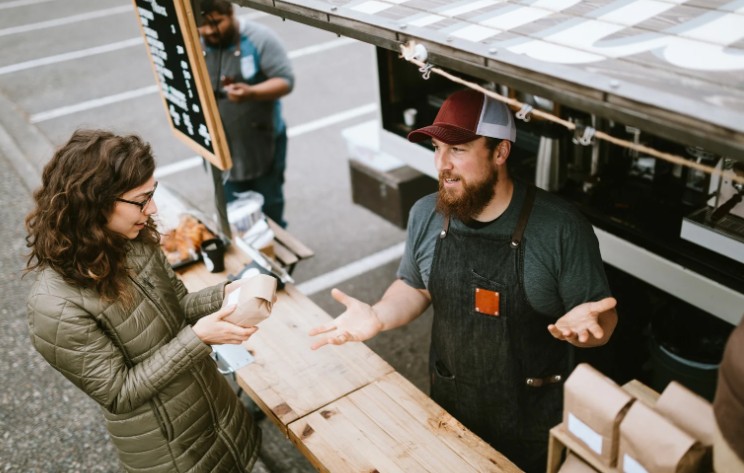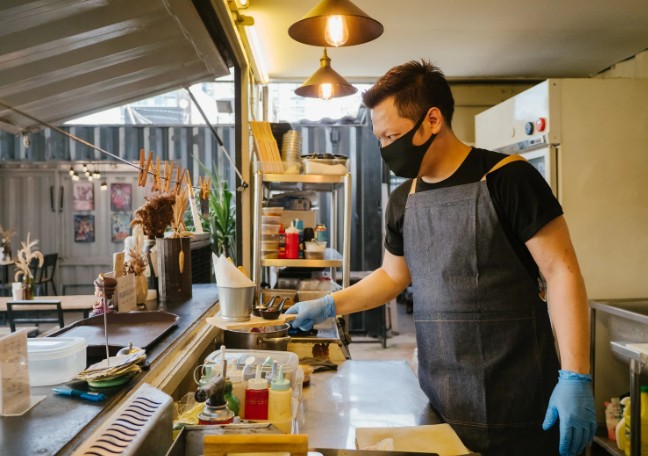- What Is a Dark Kitchen and How Does It Work in the UK?
- Can I Start a Dark Kitchen From Home in the UK Legally?
- Step-by-Step: How I Started My Own Dark Kitchen From Home?
- What Is Dark Kitchen Business Model Explained?
- What Permits and Licenses Do I Need in the UK?
- Equipment You’ll Need to Run a Dark Kitchen From Home
- How Much Does It Cost to Start a Home-Based Dark Kitchen?
- How Do I Promote My Dark Kitchen and Get Orders?
- What are the Pros and Cons of Dark Kitchen?
- Final Thoughts: Is Starting a Dark Kitchen From Home Right for Me?
- What are the FAQs About Starting a Home-Based Dark Kitchen in the UK?
What Is a Dark Kitchen and How Does It Work in the UK?
If you’re like me, always curious about innovative ways to run a food business, you’ve probably heard the term dark kitchen. But what is a dark kitchen exactly?
In simple terms, a dark kitchen — also known as a ghost kitchen, cloud kitchen, or virtual kitchen — is a food preparation facility that only fulfills delivery orders.
There’s no dine-in area, no front-of-house, and in many cases, not even a visible brand to walk into. These kitchens are designed specifically to meet the growing demand for online food delivery in the UK.

What’s the Difference Between a Dark Kitchen and a Ghost Kitchen?
Honestly? Nothing — they’re just different names for the same concept. All these terms refer to food businesses that operate behind the scenes, selling meals exclusively through apps like Deliveroo, Just Eat, and Uber Eats.
Why Are Dark Kitchens Booming in the UK?
The surge in food delivery apps and changing consumer habits post-pandemic have made virtual kitchens extremely popular.
With lower overheads and flexible setups, they’re especially attractive to solo entrepreneurs like me.
Can I Start a Dark Kitchen From Home in the UK Legally?

What UK Laws Apply to Home-Based Food Businesses?
Yes, you absolutely can start a dark kitchen from home — but you must follow strict UK regulations. Before I started, I had to learn the ins and outs of food hygiene, insurance, and business registration.
Do I Need to Register My Home Kitchen with the Council?
Yes. I had to register my kitchen with the local authority at least 28 days before opening. It’s free to do via Gov.uk and is a legal requirement under the Food Standards Agency (FSA).
What Are the Hygiene and Safety Requirements?
You’ll need to:
- Comply with food hygiene standards set by your local council
- Store ingredients separately from personal food
- Ensure cleanliness of surfaces, tools, and equipment
- Take a Level 2 Food Hygiene Certificate (I got mine online in one day)
💡 Tip: The better your hygiene score, the more customers will trust you on platforms like Uber Eats.
Step-by-Step: How I Started My Own Dark Kitchen From Home?
This is the exact process I followed to set up my dark kitchen in my London flat:
1. Register with the Local Authority
Went through the council’s website, filled in the food business registration form, and scheduled an inspection.
2. Ensure My Kitchen Met Safety Standards
Invested in proper food-safe storage, digital thermometers, and sanitising procedures.
3. Designed My Delivery-Only Menu
Kept it simple: loaded fries, mac and cheese, wings. All items travel well and are profitable.
4. Partnered with Delivery Platforms
Set up accounts with Just Eat and Uber Eats. Uploaded photos, added pricing, and launched during peak times.
5. Created Branding & Packaging
I used eco-friendly, branded packaging to stand out. Customers loved the unboxing experience!
What Is Dark Kitchen Business Model Explained?

How Do Home-Based Dark Kitchens Make Money?
The key to profitability lies in low operational costs and high delivery volumes. There’s no rent for a storefront or front-of-house staff.
How Is Cost Compared? – Dark Kitchen vs Traditional Restaurant
| Expense Type | Dark Kitchen (Home) | Traditional Restaurant |
| Rent | £0 (home kitchen) | £1,500+ / month |
| Staff Wages | Minimal (solo) | £3,000+ / month |
| Setup Costs | £2,000–£5,000 | £20,000+ |
| Delivery Platform Fees | ~30% per order | Varies |
How Is the Revenue Streams?
- Delivery orders
- Multiple “virtual brands” from one kitchen
- Catering or pre-packaged meals
What Permits and Licenses Do I Need in the UK?
Here’s what I had to sort out before accepting a single order:
- Food Hygiene Certificate: Level 2 minimum
- Kitchen Inspection: By local environmental health officer
- Business Insurance: Public liability, product liability
- Labelling Compliance: List allergens and storage instructions
Equipment You’ll Need to Run a Dark Kitchen From Home
You don’t need a commercial kitchen, but these are essentials:
Basic Equipment Checklist:
- Stainless steel work surfaces
- Commercial-grade cookware
- Delivery-safe packaging
- Digital thermometer
- Separate fridge space for business use
Tech Tools I Use:
- Point-of-sale app (Square, for example)
- Delivery platform dashboards
- Accounting tool (QuickBooks)
How Much Does It Cost to Start a Home-Based Dark Kitchen?
Here’s my actual startup budget for my home-based setup:
| Item | Estimated Cost |
| Food Hygiene Certificate | £30 |
| Basic Equipment | £1,000 |
| Packaging | £300 |
| Branding & Menu Design | £200 |
| Marketing (ads, promo codes) | £500 |
| Insurance | £150/year |
| Total | ~£2,180 |
What are the Tips to Reduce Startup Costs?
- Buy second-hand equipment
- Use Canva for DIY branding
- Start with one delivery platform before expanding

How Do I Promote My Dark Kitchen and Get Orders?
What Worked for Me?
- Created a strong Instagram presence
- Offered 20% off first orders on Uber Eats
- Encouraged reviews with free add-ons
What are Quick Local Marketing Wins?
- Get listed on Google Maps
- Offer delivery discounts via flyers in your postcode
- Partner with local influencers
What are the Pros and Cons of Dark Kitchen?
What are the Pros of Running a Dark Kitchen From Home?
- Low startup costs
- No dine-in stress
- Can run multiple brands from one kitchen
What are the Cons of Running a Dark Kitchen From Home?
- Limited scalability at home
- High competition on delivery apps
- Platform fees can eat into profits
Final Thoughts: Is Starting a Dark Kitchen From Home Right for Me?
Starting a dark kitchen from home in the UK was one of the best decisions I made. It gave me the freedom to build a food brand with low risk, test new menu ideas, and grow organically.
If you’re passionate about food and want to explore an alternative to traditional restaurants, this model could be perfect for you.
Related Article: Average Cost Of An IKEA Kitchen UK: How Much Is for Installation?
What are the FAQs About Starting a Home-Based Dark Kitchen in the UK?
1. How Much Profit Can I Make?
It depends on your margins. I make around £3–£6 profit per order after costs and platform fees.
2. Can I Run Multiple Brands from the Same Kitchen?
Yes! I run two — one for wings, another for vegan bowls. Just set up separate profiles on delivery apps.
3. Is a Ghost Kitchen the Same as a Virtual Brand?
Not exactly. A ghost kitchen is the physical space, while a virtual brand is the concept or menu that exists online.


0 Comments